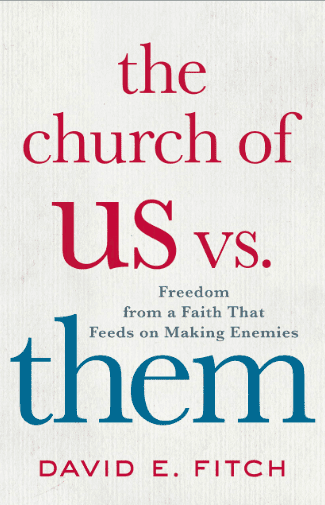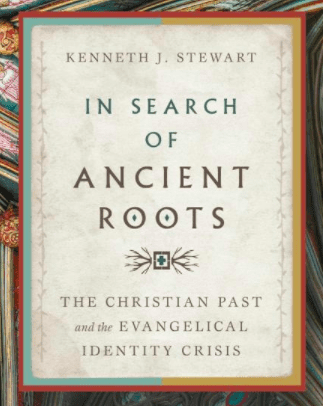Since the 1980s evangelicalism has developed new legalisms. Before I go there, let me define what “legalism” means: it refers to anything that is added to the gospel in such a way that it diminishes the sufficiency of our acceptance before God in Christ or diminishes the power of the Spirit to guide us. Legalism is not a rule; it is not disciplined actions. It has to do with “subtraction by addition”: adding something to the center so much that Christ and the Spirit are diminished.
 It all has to do with “acceptance” and “rejection.” Legalism is designed to tell one person “you’re not in” and another person “you are in.” That’s how it works.
It all has to do with “acceptance” and “rejection.” Legalism is designed to tell one person “you’re not in” and another person “you are in.” That’s how it works.
One more biggie: Acceptance and Rejection are not superficial actions. We embody whether or not God accepts a person or rejects a person in our legalisms. Don’t ever forget it: you may think you are just drawing a line in the sand for the sake of peace but what is absorbed by the excluded is “I’m not accepted by God” and what gets even more confusing is that the line-drawers start taking on the role of God. This is exactly what James meant in James 4:11-12.
Acceptance in the Christian faith is upon one basis: that the Father accepts the Son, and we are “in” the Son. We are not accepted on the basis of our particular behaviors, no matter how zealous or righteous or loving.
Do you see these three legalisms at work? Do you see the Acceptance/Rejection theme as central to legalism?
Since the 1980s, we developed three kinds of new legalisms:
First, there is a political legalism. In the 1980s and 1990s American evangelicalism got so wedded to the Republican Party that one could easily sniff it in the air. That is, one could easily know if one was “in” or “out” on the basis of whether they wore the red tie or the blue tie.
Second there is theological legalism, which has always been around. The newest forms of legalism are found among the NeoReformed, who have somehow managed to get complementarianism, Calvinism and young earth creationism … well, if not in it’s very close to the inner circle. If you don’t think this exists, go here to see it and tell us what you see there:
Sometimes this group sounds like Elijah who thought he alone was faithful. Hooey.
I poke at these guys often, but they’re hardly alone. Indeed, alongside this legalism is the progressive, emergent/emerging form of legalism, which says you can’t embrace traditional evangelical views (be they political or theological), especially something like evangelism for the purpose of salvation, if you are intelligent and ‘with it’. This is why I liked Brett McCracken’s Hipster Christianity, and the fierce reaction he got from those who see themselves as ‘with it’ showed to me he was at least pointing in the right direction about a good concern.
Third is the social legalism. This one is odd. Evangelicalism from the 1900s to about the 1960s was more or less silent when it came to social issues. Evangelicals were intoxicated with the fear of the Social Gospel. Then in the 60s and 70s, think Jim Wallis as a young firebrand, started to get socially involved. But Jim was very much alone, and he can tell you that story. But something happened in the 90s in the most ironic of ways: when everyone was beginning to carp about right-wing evangelicalism’s over indulgence in political causes (read: Republic Party and their form of political legalism), another group of evangelicals shifted more to the left politically (they joined Jim Wallis) and they began to see themselves as the Jesus Party — that is, they thought they had embraced the kingdom vision, the justice vision, the peace vision, while “evangelicals” were obsessed with penal substitution and going to heaven. That, too, became a form of legalism. The irony is that while progressive evangelicals were carping about right-wingers being in bed with the Republicans, they progressives climbed in bed in another room with the Democrats and are reading the liberation theologians.
Now I want to point my finger at the political legalism a little more sharply, and do some finger wagging.
Evangelicalism’s worst move, and its potentially destructive decision, was to politicize itself in the 1980s and 1990s and use it as a litmus test of who was in and who was out. The rise of the Moral Majority, and one has to factor in folks like Francis Schaeffer and Jerry Falwell and James Kennedy and James Dobson, has been the undoing of the evangelical coalition and not just by creating a new kind of legalism. Instead of focusing on unity for the sake of mission, evangelicalism became increasingly connected to a political party (Republicans). Instead of the Lausanne Covenant, which is one of the finest evangelical theological statements ever, we’ve got theological waffling and theological narrowing — instead of focusing on mission, we’ve turned on one another.
From the 80s on to be a true blue (or red) evangelical one had to align himself or herself with the Republican party. Or at least with overwhelmingly conservative political causes, and any variation was a sign of theological (!) drift. Think of Richard Cizik.
If you don’t think this politicization was a major movement among evangelicals, I suggest reading Robert Putnam and David Campbell: American Grace: How Religion Divides and Unites Us. They see the 60s as the Shock, and the Aftershock being the rise of conservative evangelicalism and its becoming a political movement. [More about Putnam and Campbell in a future series.]
The irony of this connection was that it led to the very thing evangelicalism was designed to shed. What’s that? Evangelicalism (read Neo-Evangelicalism) arose in the 1950s as a protest against Fundamentalism and its many legalisms and anti-intellectualism, and it’s concern was to get beyond the bickering to focus on the essentials in order to get on with the task of world mission in an intellectually respectable fashion. The spokespersons for this were Billy Graham and John Stott and CT. They fought for unity for a nobler cause; I don’t see many today taking up that vision. I for one am profoundly grateful for what CT is still doing — it still speaks for the Big Tent.
Now the irony: the protest against legalism that became evangelicalism led to a politicization that has included all sorts of opportunities for new legalisms. One has to subscribe to a list of non-essentials in order to be in good standing.
Those legalisms today are seen in politics and in an increasing number of evangelical institutions going legalistic with doctrines and ideas that should have no part when it comes to defining essentials. Furthermore, this preoccupation with minor matters (non-essentials) leads to the further fracturing of evangelicalism. And this fracturing often being expressed as the only way to “save evangelicalism.” It’s actually undermining its robustness.
Evangelicalism, therefore, is now officially up for grabs.











